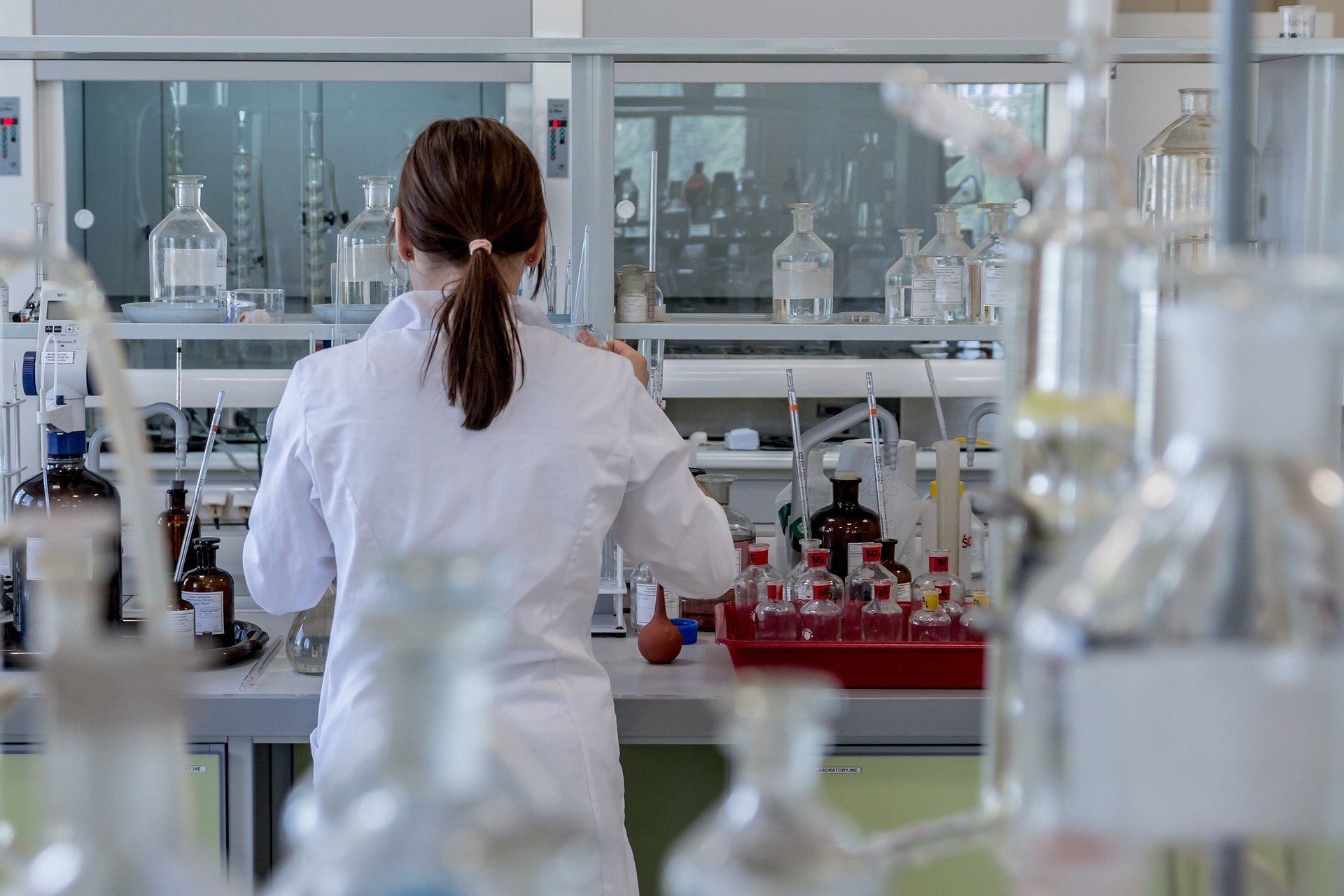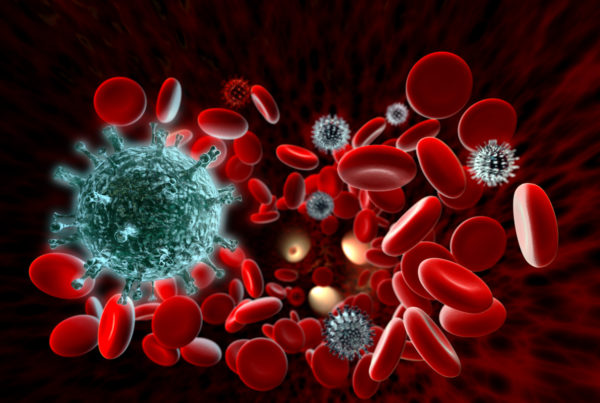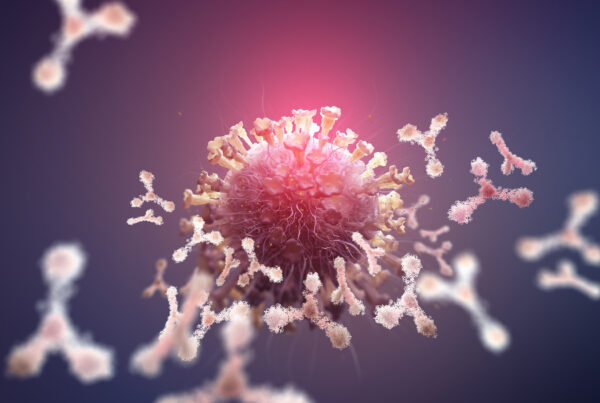Thymosin alpha 1 is a peptide derived from the prothymosin alpha protein and often a component of peptide therapy. When pared down to its basic elements, the human body relies on a vast and complex engine of proteins that power everything from cellular activity and tissue development to organ function. Proteins are made up of a series of organic compounds known as amino acids, which determine the protein’s specific function and structure.
Proteins are responsible for a number of functions and reactions throughout the body, but some of the main protein categories include:
- Antibodies
- Enzymes
- Messengers (hormones)
Peptides are generally formed from smaller amino acid chains than proteins, and they can be tailored to perform specific functions in the body, like stimulating the release of a specific hormone.
Here’s what you need to know about how thymosin alpha 1 works and its potential benefits.
What is Thymosin Alpha 1?
Thymosin alpha 1 was “discovered” in the 1960s and belongs to the family of thymosin peptides originally isolated from a bovine (cow) thymus through the thymosin fraction 5 factor. Thymosins play a number of different roles on a molecular level and have been applied towards a number of therapies and treatment in the last few decades, from immunotherapy to chemotherapy.
According to the Encyclopedia of Immunology (Second Edition):
Thymosins are a group of low molecular weight acidic peptides isolated from the original factor thymosin fraction 5 (TF5) extracted from the bovine thymus by AL Goldstein and colleagues. At least 30 different peptides can be identified by isoelectric focusing of TF5, including thymosin α1 (Tα1), β4 (Tβ4) and MB35. TF5 displays potent stimulatory effects on T cell-mediated immunity, and may be involved in maintaining the size of the thymus and of thymocyte subpopulations. Tα1 induces the expression of the T cell differentiation antigens Thy-1, CD5 and CD8 and increases murine lymphocyte mitogenic responses, antibody and cytokine production.
Tα1 has sequence homologies with the vasoactive intestinal peptide (VIP) family and it is able to function as a VIP receptor antagonist with weak intrinsic activity. Recently, cell surface receptors for ProTα were found and, while not yet fully characterized, they appear to be different to those for Tα1. ProTα also has immunopotentiating activities.
In the human body, thymosin alpha 1 is expressed by the PTMA (Prothymosin Alpha) gene.
What Does Thymosin Alpha 1 Do?
Clinical trials have been conducted to study the efficacy of thymosin alpha 1’s therapeutic capabilities as an immune-boosting agent, an anti-inflammatory, and possibly a Hepatitis B and C treatment.
According to a set of study results published in the American Journal of Health-System Pharmacy (AJHP):
TA1 is a synthetic polypeptide. The drug is in Phase III trials for the treatment of hepatitis C and in Phase II trials for hepatitis B. Additional possible indications are malignant melanoma, hepatocellular carcinoma, drug-resistant tuberculosis, and Di George’s syndrome.
TA1 is thought to modulate the immune system by augmenting T-cell function. TA1 may affect thymocytes by stimulating their differentiation or by converting them to active T cells. TA1 is rapidly absorbed, achieving peak serum concentrations within two hours. Blood levels return to baseline within 24 hours, and the serum half-life is approximately 2 hours. TA1’s efficacy in hepatitis B has been evaluated in 195 patients in four clinical trials.
One study found hepatitis B virus (HBV) DNA clearance at six months in 9 of 17 patients receiving TA1, compared with 10 of 16 patients treated with interferon alfa-2b (IFN- 2b) and 4 of 15 historical controls. An open-label trial found HBV DNA clearance in 53% of patients at six months. A randomized, controlled trial found HBV DNA clearance in 40.6% and 25.6% of patients treated with TA1 for 6 and 12 months, respectively, compared with 9.4% of untreated controls. Efficacy for hepatitis C has been evaluated in 162 patients in three clinical trials.
Given the role that inflammation and immune health play in everything from disease development to the aging process itself, the possibilities for thymosin alpha 1 related peptide therapy could be very promising.
Another member of the thymosin family, thymosin beta 4, is a peptide therapy agent available to help boost tissue repair and promote a healthy immune system and anti-inflammatory responses to protect and promote healthy tissue repair and regeneration.
 Why Do People Use Thymosin Alpha 1?
Why Do People Use Thymosin Alpha 1?
There are a variety of uses for thymosin alpha 1 — many of which are widely accepted and tested within the medical community. For example, a proprietary formation of TA1 called Zadaxin is approved in 30 countries for treating Hepatitis B, C, and even cancer.
Outside of that, TA1 is an effective immunomodulator. Because of that, some clinicians have used it to help control inflammation.
The Toll Inflammation Can Take on Your Body
Most active and health-conscious individuals are well aware and well-versed in the dangers of chronic inflammation. At first, inflammation is an important biological response to an injury or disease. The problem is that it’s meant to be temporary. When the inflammation switch is triggered but not turned off as it should be once the wound has healed or your immune system has kicked the illness or infection, it can actually turn rogue and put you at risk for a number of potentially serious health problems.
According to the National Center for Biotechnology Information (NCBI):
Chronic inflammatory diseases are the most significant cause of death in the world. The World Health Organization (WHO) ranks chronic diseases as the greatest threat to human health.
The prevalence of diseases associated with chronic inflammation is anticipated to increase persistently for the next 30 years in the United States. in 2000, nearly 125 million Americans were living with chronic conditions and 61 million (21%) had more than one.
In recent estimates by Rand Corporation, in 2014 nearly 60% of Americans had at least one chronic condition, 42% had more than one and 12% of adults had 5 or more chronic conditions. Worldwide, 3 of 5 people die due to chronic inflammatory diseases like stroke, chronic respiratory diseases, heart disorders, cancer, obesity, and diabetes.
Like other biological and health aspects, some people may be more prone to inflammation than others.
Some of the most common signs and symptoms of inflammation include:
- Loss of appetite
- Fatigue
- Pain
- Rash
- Headaches
- Chills
- Depleted energy levels
- Muscle stiffness
- Joint pain and stiffness
Inflammation can be acute (sudden onset and short term) or chronic, and the associated health risks are generally linked to chronic inflammation.
Autoimmune Diseases — a Major Risk of an Immune System Gone Awry
Chronic inflammation increases the risk of autoimmune diseases where the immune system essentially overreacts, and attacks otherwise healthy tissue like it would a virus or bacteria. Some of the autoimmune diseases linked to inflammation are rheumatoid arthritis (RA), and inflammatory bowel diseases (IBD) like Crohn’s disease and ulcerative colitis.
Other health risks associated with inflammation:
- Sleep problems
- Lung diseases like asthma and respiratory issues
- Periodontal (gum) disease
- Insulin resistance
- Weak bones
- Skin problems like psoriasis and premature aging
- Depression
Like many health problems, inflammation has a number of possible culprits, some of which are partially attributable to lifestyle factors like an unhealthy diet and smoking, and others which are related to secondary health problems and the environment.
Chronic inflammation isn’t generally something that you should try to treat on your own. Autoimmune diseases are serious — and potentially life-threatening — and if you are having any symptoms you think might be because of chronic inflammation, you should see a doctor.
 Novel Uses of Thymosin Alpha 1
Novel Uses of Thymosin Alpha 1
Clinical research has identified a range of additional applications for thymosin alpha 1 such as antigen development in tumors, T cell maturation, and potential virus suppression due to increased homeostasis of the immune system. According to a recent study in the journal of Biomedicine and Pharmacotherapy:
Tα1 regulates the biological immune response and enhances the differentiation and maturation of T cells [6]. It can even activate dendritic cells [7] to induce them into plasma DC cells, and enhance the expression of indoleamine 2,3-dioxygenase [8] simultaneously.
Thereby maintaining immune homeostasis to holdout viruses or restrain inflammation. Tα1 can not only regulate immune function, but also induce tumor cells to present antigens, which is beneficial to the recognition of tumor cells by the immune system [9].
Tα1 and its modified peptides or its combination with other drugs has shown to reduce the growth of tumor cells and to treat various cancers in vivo and in vitro. Tα1 has been used in the treatment of many diseases, including melanoma [[10], [11], [12]], lung cancer [13], breast adenocarcinoma [14], sepsis [[15], [16], [17]], and hepatitis B [[18], [19], [20]]. Adverse reactions have not been found in the clinical cases so far.
According to another study published in the Annals of the New York Academy of Sciences, one study found that thymosin alpha 1 showed promise as an alternative to thymostimulin for the treatment of Chronic purulent rhinosinusitis (CPR), which is known to cause immune system deficiency in patients.
TA1 has also been used in increasing the efficacy of the influenza vaccine. When injected alongside the vaccine, it seemed to improve its protective qualities. In other words, fewer people receiving the TA1 + vaccine got sick than just the vaccine by itself. It has even been used in vulnerable populations with significant results.
In this way, thymosin alpha 1 might be beneficial when combined with other vaccines. This could be a boon during an outbreak or pandemic wherein added immunity could boost survival rates significantly.
Thymosin alpha 1 might also be effective in cases of severe sepsis:
A total of 361 patients were allocated to either the control group (n = 180) or Tα1 (n = 181) group. The mortalities from any cause within 28 days in the Tα1 group and control group were 26.0% and 35.0% respectively with a marginal P value (nonstratified analysis, P = 0.062; log rank, P = 0.049); the relative risk of death in the Tα1 group as compared to the control group was 0.74 (95% CI 0.54 to 1.02).
Greater improvement of mHLA-DR was observed in the Tα1 group on day 3 (mean difference in mHLA-DR changes between the two groups was 3.9%, 95% CI 0.2 to 7.6%, P = 0.037) and day 7 (mean difference in mHLA-DR changes between the two groups was 5.8%, 95% CI 1.0 to 10.5%, P = 0.017) than in the control group. No serious drug-related adverse event was recorded.
All of this seems to implicate thymosin alpha 1 as a powerful drug in regard to infection. It’s possible that we might see it studied in relation to novel viruses in the future.
Thymosin Alpha 1: A Peptide With Powerful Punch
Thymosin alpha 1’s versatility and limited adverse reactions in clinical trials make it an especially promising example of the role that peptide therapy can play in maintaining and promoting health and wellbeing in a number of areas.
For more information about thymosin alpha 1 and to learn more about how peptide therapy can help you achieve your lifestyle and wellness goals as part of a healthy diet and exercise regime, contact us today to discuss your goals and to learn more about your options.
As with any treatment, the results and potential side effects of peptide therapy will vary from person to person. Peptide therapy is not intended as a replacement or alternative to medical treatment or a healthy diet and active lifestyle, which is the cornerstone of lasting health, wellbeing, and longevity. For high functioning and athletic individuals, peptide therapy may provide an added boost to traditional therapies and treatment programs.


 Why Do People Use Thymosin Alpha 1?
Why Do People Use Thymosin Alpha 1? Novel Uses of Thymosin Alpha 1
Novel Uses of Thymosin Alpha 1

